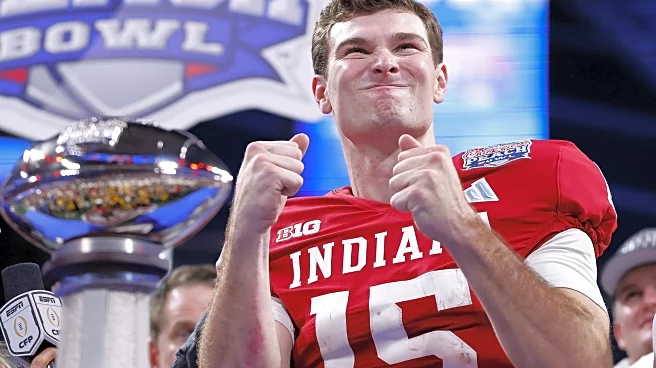What is the story about?
What's Happening?
An opinion piece in The Washington Post argues that violent texts, such as those sent by Virginia Attorney General candidate Jay Jones, should disqualify individuals from holding public office. The editorial criticizes Jones for his violent rhetoric and calls for Virginia Democrats to make a clear stance against such behavior. The piece emphasizes the importance of maintaining civility in politics and warns against normalizing violent fantasies. The author urges voters to consider the character and actions of candidates before casting their votes, highlighting the need for thorough vetting processes.
Why It's Important?
The opinion piece reflects broader concerns about the impact of violent rhetoric on democratic values and political discourse. It underscores the importance of holding public figures accountable for their words and actions, particularly in the context of political campaigns. The article calls for a reevaluation of candidate vetting processes to prevent individuals with violent tendencies from gaining public office. The discussion may influence public opinion and voter behavior, potentially affecting electoral outcomes and party strategies.
What's Next?
The controversy surrounding Jay Jones may lead to increased scrutiny of candidates' past statements and actions, influencing future political campaigns. Political parties may need to reassess their vetting processes and candidate selection criteria to avoid similar scandals. The situation may prompt discussions on the importance of civility in politics and the need for maintaining democratic values in political discourse.
Beyond the Headlines
The opinion piece highlights ethical questions about the responsibilities of public figures and the impact of their words on public discourse. It raises concerns about political polarization and the normalization of violent rhetoric, prompting discussions on the need for civility in politics. The situation may lead to long-term shifts in political campaign strategies and public expectations of political leaders.
















